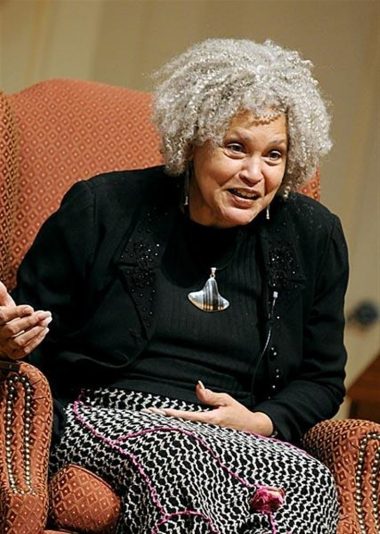Charlayne Hunter-Gault, a longtime reporter whose career included stints with the New York Times, CNN and NPR, spoke with the Elon University community Feb. 26 about trends in American journalism and what she believes are stereotypes found in media coverage of events in Africa, where she now lives.

Hunter-Gault cited two reasons why that type of excessive coverage is dangerous. She said the constant negativity from the “four D’s” turns American, and international, attention away from problems yet to be resolved.
“After a point people say ‘why bother?’ if it’s only going to be more of the same and nothing they do is going to make a difference,” she said in the Q-and-A. “We never get to know them except in their misery, so that keeps us in one frame of mind about Africa …It’s not news when an African does something positive unless it’s Desmond Tutu getting a Nobel Prize.”
The second problem, she said, is that Americans may not be learning about the broader geopolitical ramifications of problems on the continent. For example, she said, violence in Somalia – if left unchecked – could create a new breeding ground for Islamic terrorists.
“What happens in Africa is eventually going to affect what happens here,” she said.
Hunter-Gault also talked about news coverage in the United States and what she perceives to be a pattern of “hysteria” with some television networks. Still, she said, there is a healthy appetite for serious news and that the most important thing for budding journalists to remember is that they must be believable to their audiences.
“The thing about democracy is that it’s a work in progress and it requires vigilance,” Hunter-Gault said. “You can’t be complacent about your rights even though they’re guaranteed in the Constitution.”
Hunter-Gault is the author of New News Out of Africa: Uncovering the African Renaissance and In My Place, a memoir of the civil rights movement. She was the first black woman to attend the University of Georgia and has won two Peabody Awards throughout her storied career.
“Her impact on history has come in two parts,” said Anthony Hatcher, an associate professor of communications and moderator of the afternoon question-and-answer, during his opening remarks. “First, when she made the news, then, when she reported it.”
The Liberal Arts Forum and the School of Communications sponsored the talk.


